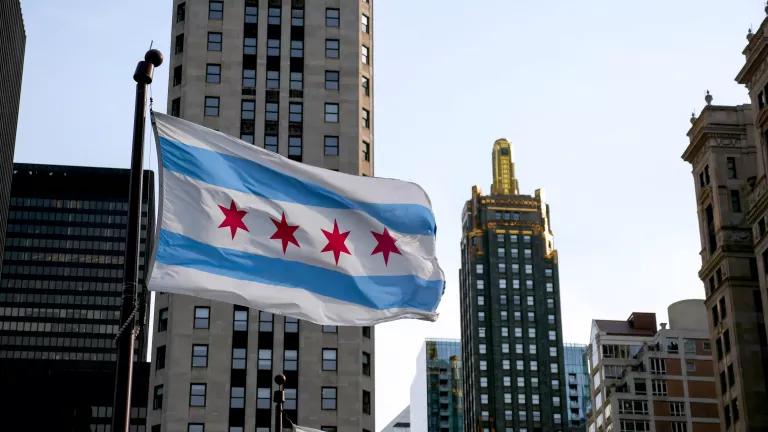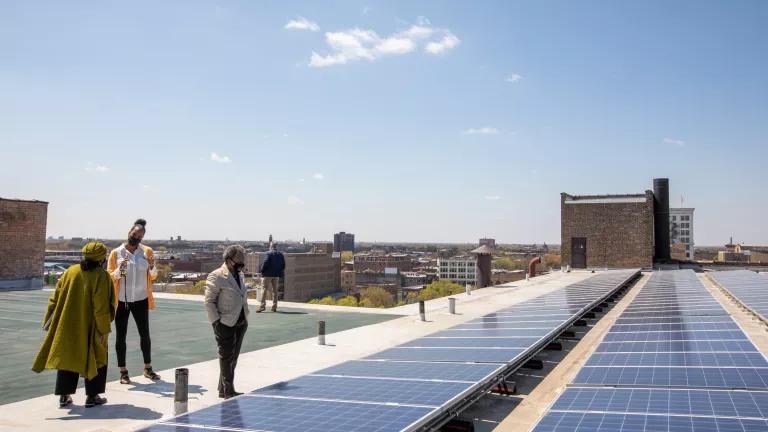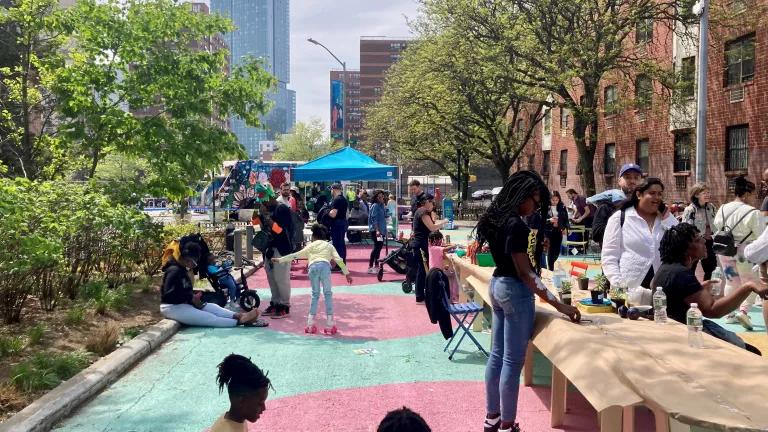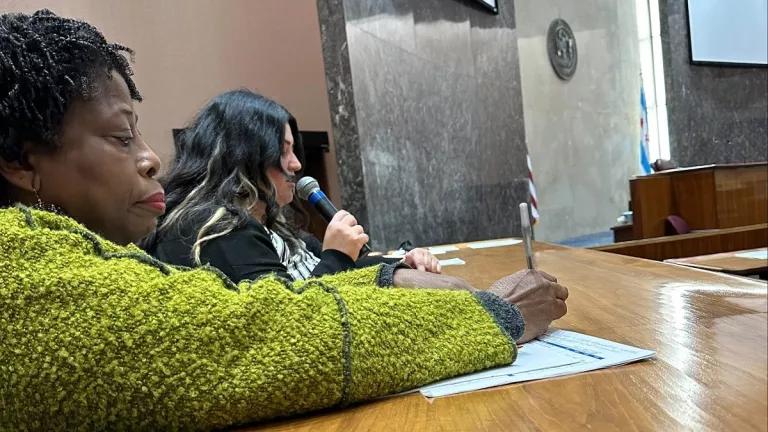Chicago Takes a New Step Toward Renewable Energy
Chicago is taking an exciting step toward renewable energy for the city’s buildings by announcing a Request for Proposals.

This blog was co-authored with Mary Nicol, Climate Advisor to the City of Chicago.
Chicago is taking an exciting step toward renewable energy for the city’s buildings by announcing a Request for Proposals (“RFP”) for a new renewable energy supply contract at an estimated $200 million in value.
As a member of the Bloomberg Philanthropies American Cities Climate Challenge, Chicago Mayor Lori Lightfoot is following through on her commitment to power all city-owned buildings by 100 percent renewable energy by 2025. This is an important milestone toward Chicago’s overarching vision of a cleaner and more sustainable energy supply, demonstrating progress in achieving the city’s long-term goal of powering 100 percent of all buildings communitywide with renewable energy by 2035.
The announcement also highlights Chicago’s commitment to ensuring the benefits of renewable energy investments are experienced by all communities in the area. Reaching 100 percent renewable energy for all municipal buildings by 2025 will create new employment opportunities, improve air quality and public health, and put Chicago and safer financial footing by stabilizing the city’s energy costs. The City of Chicago will engage community advocates along the way and well beyond January 2022, when Chicago’s contract with Constellation NewEnergy ends and the new contract will go into effect.
Chicago’s pursuit of renewable energy is the next step toward a more resilient and equitable energy future, building upon the city’s other recent sustainability accomplishments consistent with American Cities Climate Challenge objectives of reducing greenhouse gas (GHG) emissions in the building and transportation sectors, including:
- Chicago’s recent release of its 2017 Greenhouse Gas Inventory report, which revealed that the city reduced its GHG emissions by 15 percent from 2005 to 2017. Decreasing emissions in the building sector was a key component of this progress, due in large part to the Chicago Energy Benchmarking Ordinance, which requires municipal, commercial, and residential buildings of 50,000 square feet and larger to track, report, and verify energy usage data every three years.
- The April 2020 passage of an Electric Vehicle (EV) readiness ordinance, which requires EV charging at commercial and residential buildings, ensuring that residents can have more equitable access to EVs throughout the city.
- The August 2020 launch of the second citywide e-scooter share pilot program, an expanded four-month program that builds off of the learnings from the inaugural 2019 pilot to enhance right-of-way navigability, public safety, and equitable access to e-scooters.
- Last year’s passage of a progressive transportation network provider (TNP) fee, which was Chicago’s innovative response to addressing severe congestion and air pollution. The law will raise an estimated $40 million annually, $2 million of which will be used to make direct major improvements to Chicago’s public transportation system.
Chicago’s pursuit of 100% renewable energy for all City-owned buildings by 2025 is the city’s most recent step toward a more resilient and equitable energy future. As a member of the American Cities Climate Challenge receiving technical support from Rocky Mountain Institute, World Resources Institute, and other partners, Chicago continues to demonstrate its leadership in the transition to clean energy and a healthier planet for current and future generations.



